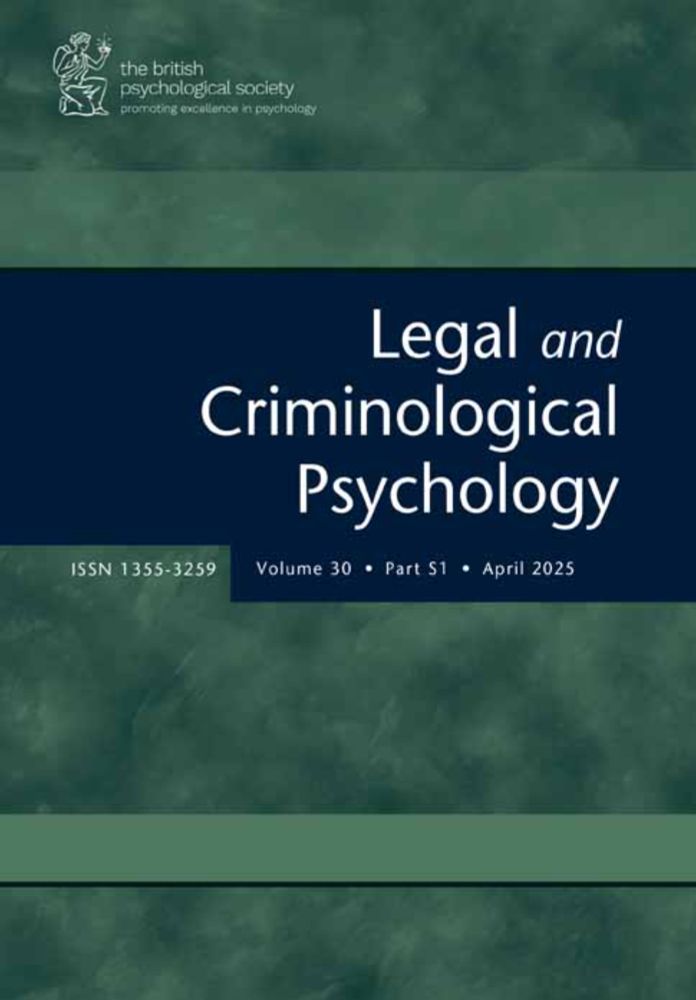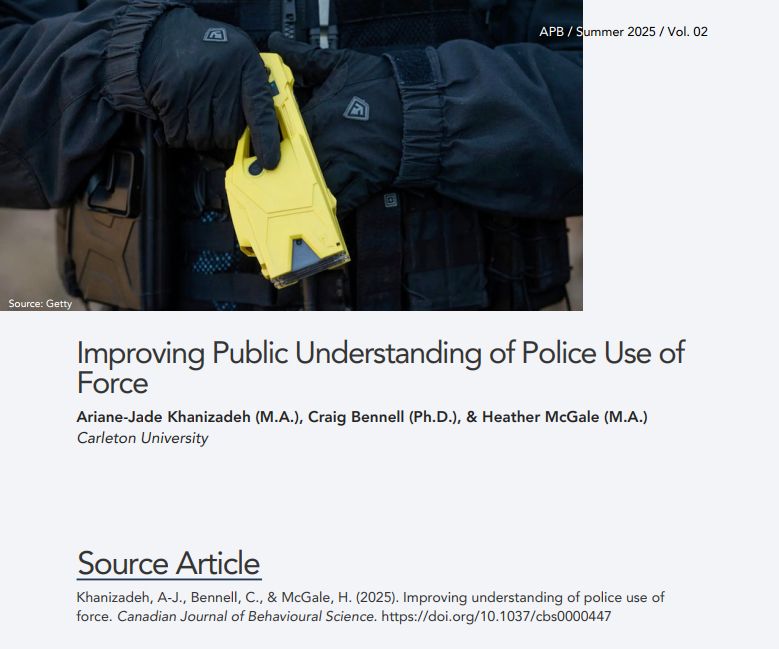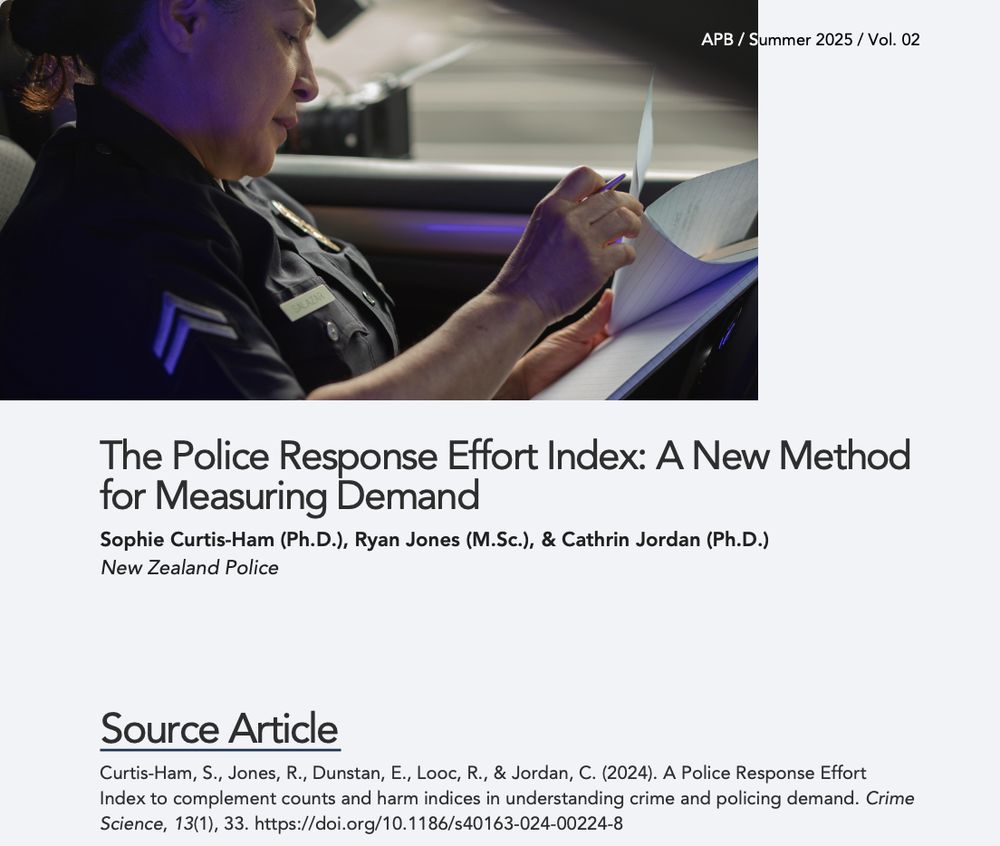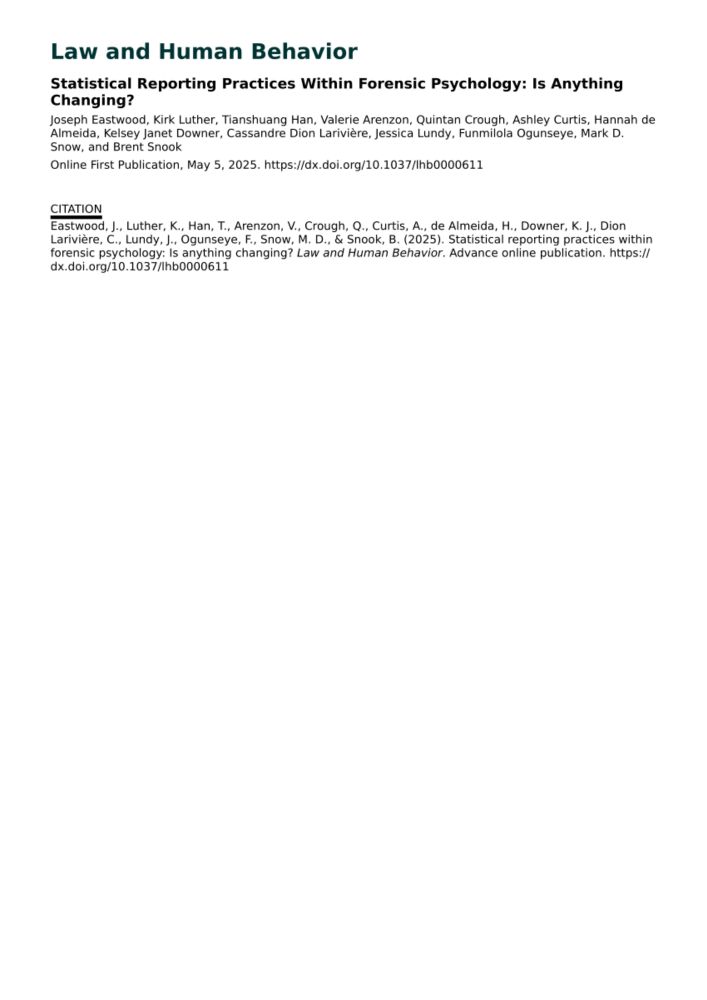MUN Psych & Law Lab
@munpsychlawlab.bsky.social
370 followers
36 following
57 posts
Tweeting the importance of research on human behaviour in the criminal justice system. Improving justice administration through applied research and training.
Posts
Media
Videos
Starter Packs
Reposted by MUN Psych & Law Lab
Reposted by MUN Psych & Law Lab
Reposted by MUN Psych & Law Lab
Reposted by MUN Psych & Law Lab
Reposted by MUN Psych & Law Lab
Reposted by MUN Psych & Law Lab
Reposted by MUN Psych & Law Lab
Reposted by MUN Psych & Law Lab









